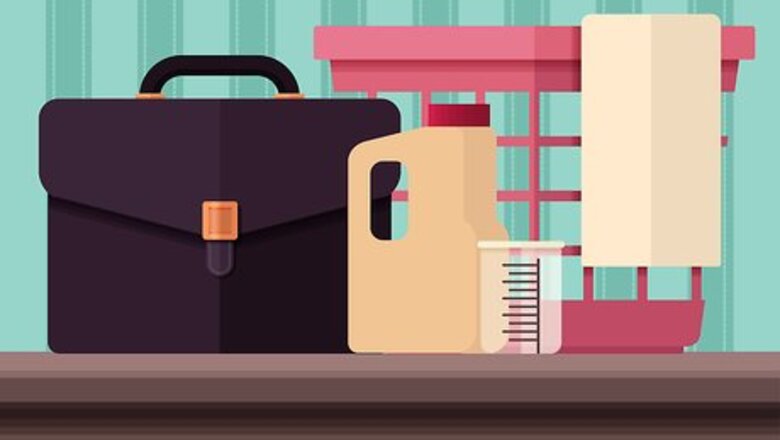
views
Planning Your Business

Gain experience. Before opening your own business, try working in an existing dry cleaning shop for a few months to a year. This will help you determine if the dry cleaning business is right for you, and can teach you valuable skills that you can bring to your own business. You may also learn a lot about what kind of equipment you will need, how much money you can expect to spend starting up your business, and how to interact better with customers. If working in a dry cleaning business isn't an option, do some thorough research. Read online to learn what it takes to run a dry cleaning business, borrow books from the library, and ask questions to people who work in the industry.
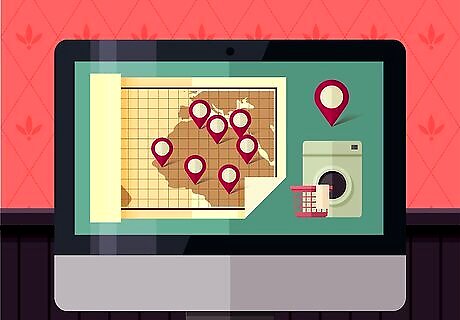
Research the market. Chances are you will have a difficult time starting up a dry cleaning business if you've never worked in that market before. Check census data to determine the population in your area. Use a phone book or search online to determine how many dry cleaning businesses exist in your community. You don't want to start a new business in an over-saturated market.
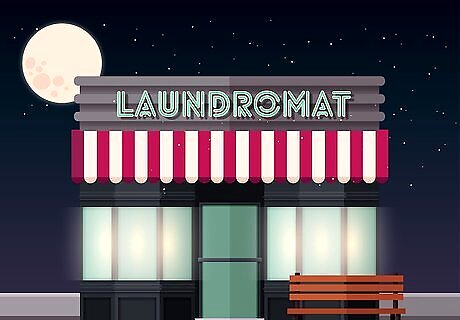
Decide on a location and model. You'll want to know in advance where you plan on opening your business, so you can factor in the cost of renting a storefront. You may also want to brand yourself as an alternative dry cleaning business that offers home delivery or uses environmentally sustainable cleaning methods. This may help you appeal to potential customers, and could fill a vacant niche in your community. If you choose to make your business a delivery service, you'll need reliable transportation, as well as reliable drivers. This also requires you to decide whether or not you will hire a staff, and how big your staff will be. Consider opening a "green" dry cleaning business. Many traditional dry cleaning businesses use harmful chemicals known as perchloroethylene. Green dry cleaners use healthy, environmentally-friendly chemicals like harvested carbon dioxide.
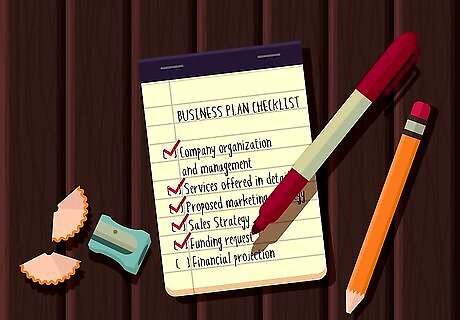
Write a business plan. This should be a formal declaration of your professional goals and your plans for attaining those goals. It will serve as a template for your business, and may be necessary to secure funding if you intend to take out a loan. Start with organization and management. This is a good place to begin your business plan, as it lays out your company's managerial structure, the professional qualifications for each member of your business, and your plans for maintaining ownership of the company. Next, describe your service in great detail, including any factors that separate your business from existing dry cleaning businesses. You should also incorporate a description of how your service works, and include any existing, pending, or predicted filings for copyrights or patents related to your business. Lay out your proposed marketing strategy, including how you plan to enter the market, how you plan on growing your business, what your channels of distribution might be, and how you plan on marketing your business to customers. Develop a sales strategy that includes your proposed sales force and your projected sales activities. Draft up a funding request, if necessary. This should include your business's current financial needs, projected financial requirements over a period of five years, how (specifically) you will use funding upon receipt of financial assistance, and strategic financial plans for the future. After you or an accountant has analyzed the market you intend to enter, you will need to draft up a financial projection. This includes historical financial information if you've been in business before, as well as projected financial data (anticipated earnings, losses, etc.) for the next five years. A business plan is the best way to show investors that you are serious.
Opening Your Business

Secure funding. Once you've set a budget and calculated your projected profits and losses, you'll need to secure funding to get your business off the ground. How much you will need will depend on where you intend to operate your business, as well as what kind of equipment you intend to use. It's possible to start a dry cleaning business for under $2,000, but some high-end, industry-specific equipment can cost $40,000 or more. Some start-up dry cleaning businesses require as much as $500,000 in capital just to get the business off the ground. Consult with an accountant or financial advisor to determine how much money you will need to secure. You may be eligible for a small business loan. Contact a financial institution in your area, or read more about small business loan qualifications at https://www.sba.gov/funding-programs/loans/7a-loans#id-am-i-eligible-. Consider opening a franchise location, rather than starting a business from scratch. A franchise has several advantages, including name/brand recognition and an existing, successful business model. The easiest and fastest way to get funding is to have a partner putting in the personal money. If you don't have savings, you'll need to find an investor. Reach out to interested friends and family members first—these are the best people to approach and convince. You can reach out to angel investors, or outside investors who are looking for a big vision.
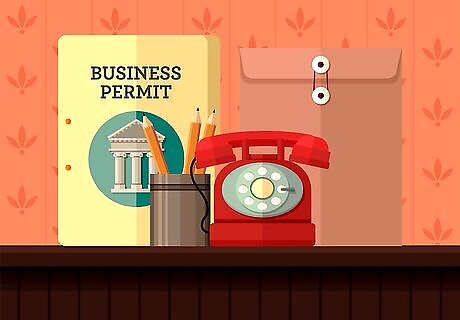
Obtain the necessary permits and licenses. You'll need a special permit and license to operate a dry cleaning business, and you'll probably need to renew your license and permit on a regular basis. Contact your local and state officials to obtain and file the necessary paperwork to start your dry cleaning business. If you plan on hiring a staff, you may also need to contact the Internal Revenue Service to register your business and receive an Employer Identification Number.
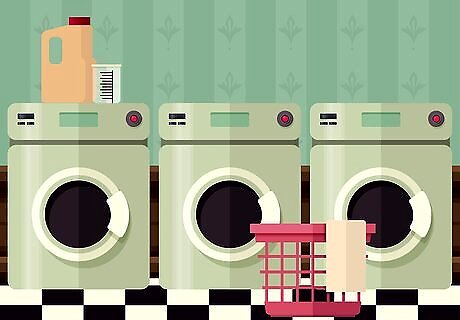
Rent or purchase equipment. You can't run a dry cleaning business without dry cleaning equipment. This part of the process can be quite expensive, but if you buy cheap equipment it could end up increasing your costs to pay for repairs or replacements. Buy from reputable equipment manufacturers and dealers, or consider buying equipment in good working condition from a dry cleaner who is going out of business.

Hire a staff. It's best if your staff has relevant experience, and knows how to work at a dry cleaning business. Keep in mind that you will have to pay your staff competitive wages. Hourly wages for this occupation range from $8.13/hour to $14.67/hour, but in some cities the minimum wage may be as high as $15/hour. Even with a staff, expect to spend much of your time at the store. You will probably need to work at cleaning clothes quite a bit, especially to help keep costs down (doing your own work instead of paying extra employees to do the work you could be doing). You'll also need to spend a lot of time at the store to be the face of your business, networking with customers and ensuring that clients are satisfied with the work you've done on their clothes.
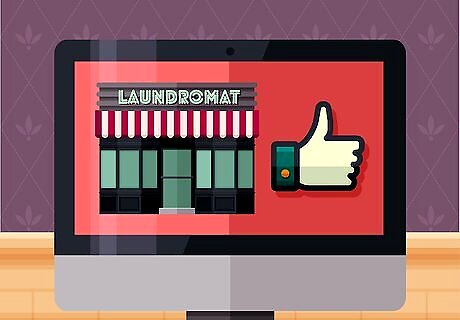
Market your business. Marketing your new dry cleaning business is essential in bringing in the customers to keep it running. A phone book advertisement may be expensive, but could bring in a lot of clients. However, social media allows businesses to advertise for free, and lets customers reach out directly to business owners. You can even offer special discounts or coupons through social media, which would encourage customers to follow your business online.


















Comments
0 comment